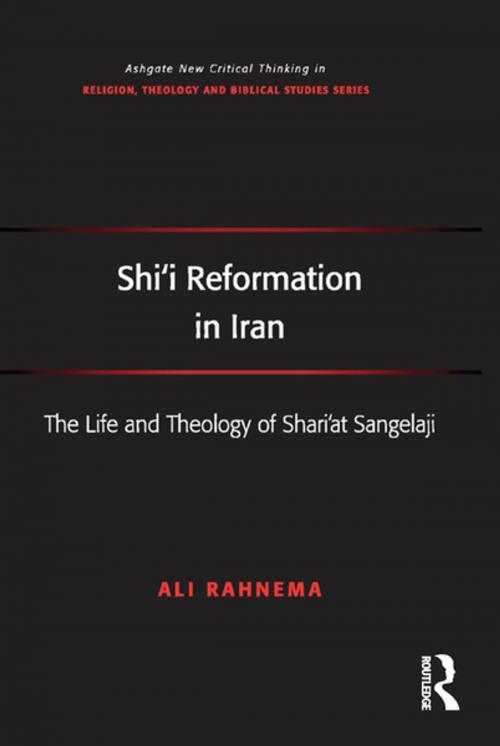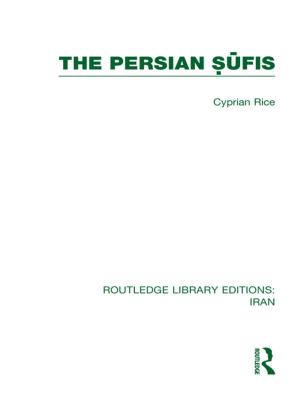Shi'i Reformation in Iran
The Life and Theology of Shari’at Sangelaji
Nonfiction, Religion & Spirituality, Reference, History, Social & Cultural Studies, Social Science| Author: | Ali Rahnema | ISBN: | 9781317055327 |
| Publisher: | Taylor and Francis | Publication: | March 3, 2016 |
| Imprint: | Routledge | Language: | English |
| Author: | Ali Rahnema |
| ISBN: | 9781317055327 |
| Publisher: | Taylor and Francis |
| Publication: | March 3, 2016 |
| Imprint: | Routledge |
| Language: | English |
Shi 'ism caught the attention of the world as Iran experienced her revolution in 1979 and was subsequently cast in the mold of a monolithic discourse of radical political Islam. The spokespersons of Shi'i Islam, in or out of power, have not been the sole representatives of the faith. Nonconformist and uncompromising, the Shi’i jurist and reformist Shari’at Sangelaji (1891-1944) challenged certain popular Shi’i beliefs and the mainstream clerical establishment, guarding and propagating it. In Shi'i Reformation in Iran, Ali Rahnema offers a fresh understanding of Sangelaji’s reformist discourse from a theological standpoint, and takes readers into the heart of the key religious debates in Iran in the 1940s. Exploring Sangelaji’s life, theological position and disputations, Rahnema demonstrates that far from being change resistant, debates around why and how to reform the faith have long been at the heart of Shi’i Islam. Drawing on the writings and sermons of Sangelaji, as well as interviews with his son, the book provides a detailed and comprehensive introduction to the reformist’s ideas. As such it offers scholars of religion and Middle Eastern politics alike a penetrating insight into the impact that these ideas have had on Shi’ism - an impact which is still felt today.
Shi 'ism caught the attention of the world as Iran experienced her revolution in 1979 and was subsequently cast in the mold of a monolithic discourse of radical political Islam. The spokespersons of Shi'i Islam, in or out of power, have not been the sole representatives of the faith. Nonconformist and uncompromising, the Shi’i jurist and reformist Shari’at Sangelaji (1891-1944) challenged certain popular Shi’i beliefs and the mainstream clerical establishment, guarding and propagating it. In Shi'i Reformation in Iran, Ali Rahnema offers a fresh understanding of Sangelaji’s reformist discourse from a theological standpoint, and takes readers into the heart of the key religious debates in Iran in the 1940s. Exploring Sangelaji’s life, theological position and disputations, Rahnema demonstrates that far from being change resistant, debates around why and how to reform the faith have long been at the heart of Shi’i Islam. Drawing on the writings and sermons of Sangelaji, as well as interviews with his son, the book provides a detailed and comprehensive introduction to the reformist’s ideas. As such it offers scholars of religion and Middle Eastern politics alike a penetrating insight into the impact that these ideas have had on Shi’ism - an impact which is still felt today.















